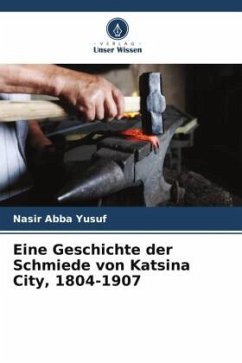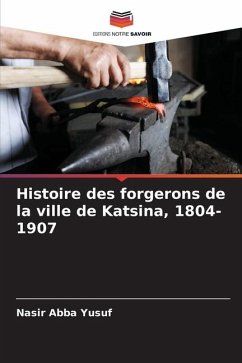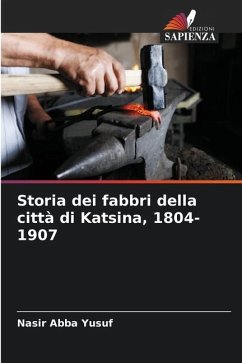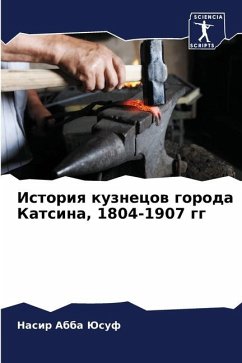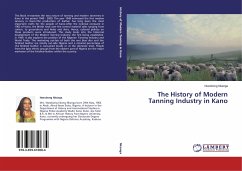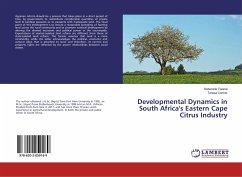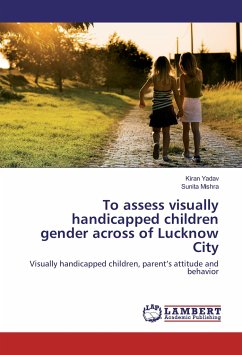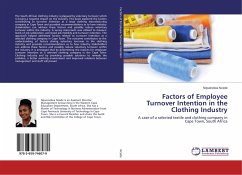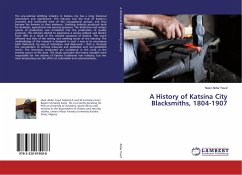
A History of Katsina City Blacksmiths, 1804-1907
Versandkostenfrei!
Versandfertig in 6-10 Tagen
33,99 €
inkl. MwSt.

PAYBACK Punkte
17 °P sammeln!
The pre-colonial smithing industry in Katsina city has a long historical antecedent and significance. The industry was the hub of Katsina's economy and connected most of the occupational groups, and thus became the livewire to their existence. Smithing industry produced tools for domestic, agricultural and security purposes. The distinctive and unique system of production was translated into the production of quality products. This industry started to experience a serious setback and decline from 1903 as a result of the colonial conquest of Katsina. The worst affected was that of the mining an...
The pre-colonial smithing industry in Katsina city has a long historical antecedent and significance. The industry was the hub of Katsina's economy and connected most of the occupational groups, and thus became the livewire to their existence. Smithing industry produced tools for domestic, agricultural and security purposes. The distinctive and unique system of production was translated into the production of quality products. This industry started to experience a serious setback and decline from 1903 as a result of the colonial conquest of Katsina. The worst affected was that of the mining and smelting sector of the industry. The methodology of the research is designed in such a way as to encompass both field-work, by way of interviews, and desk-work - that is, through the consultation of archival materials and published and non-published works. The interviews conducted are considered in this work as the primary source of the data. The study concludes that many variables were responsible for the decline of Katsina Traditional iron Industry, but the most devastating was the effect of colonialism and colonial policies.



